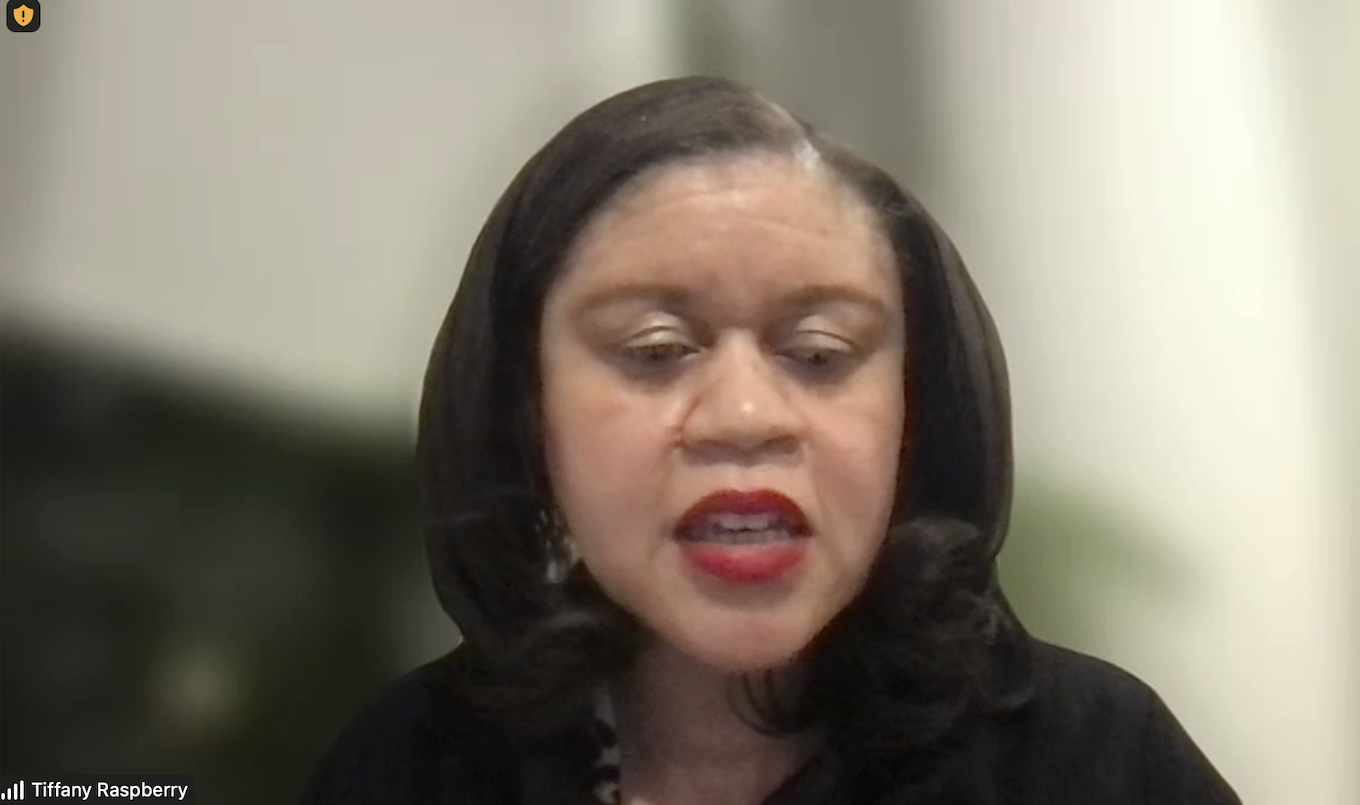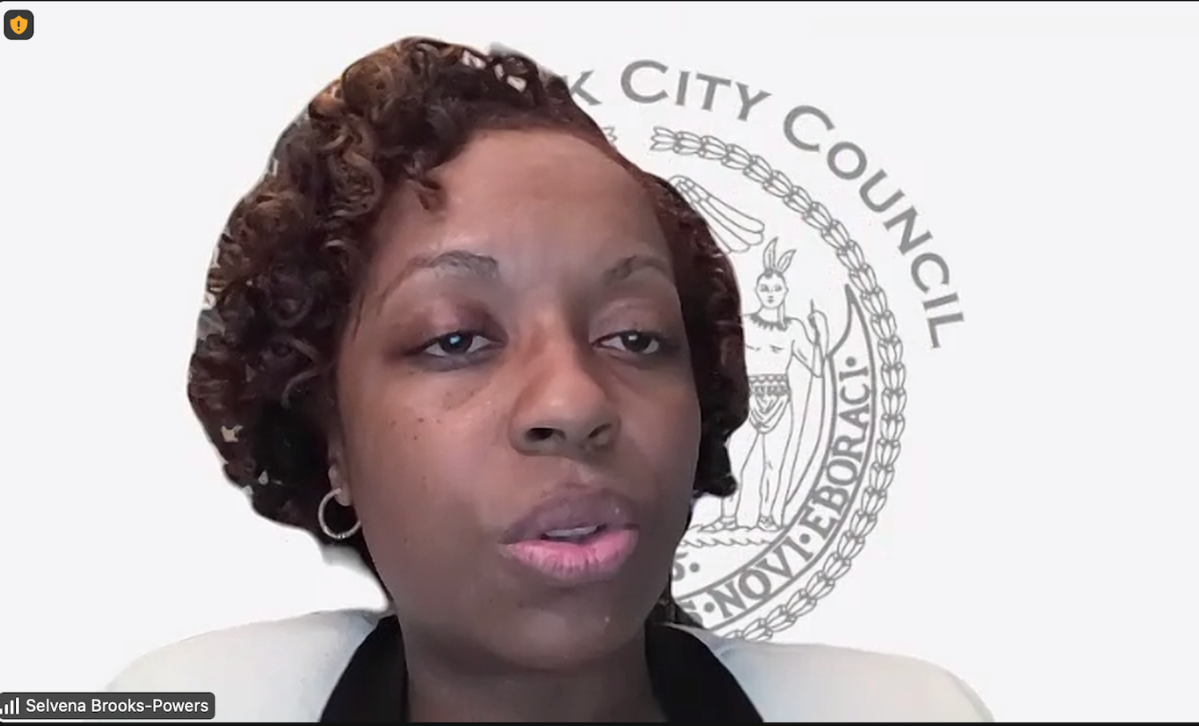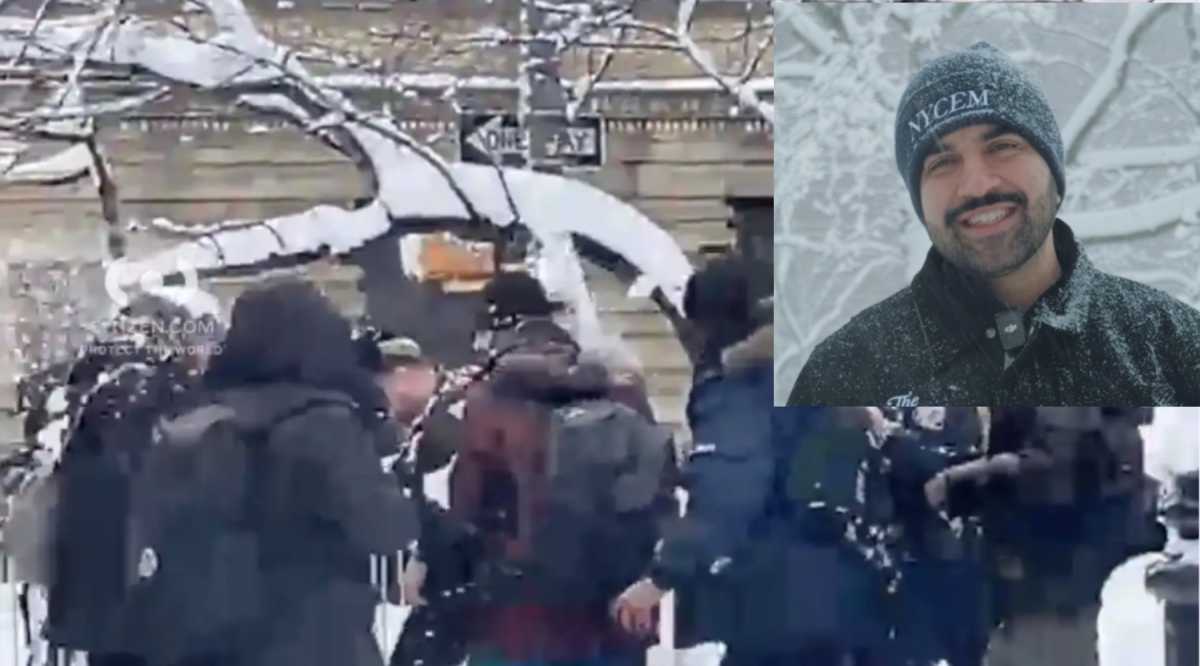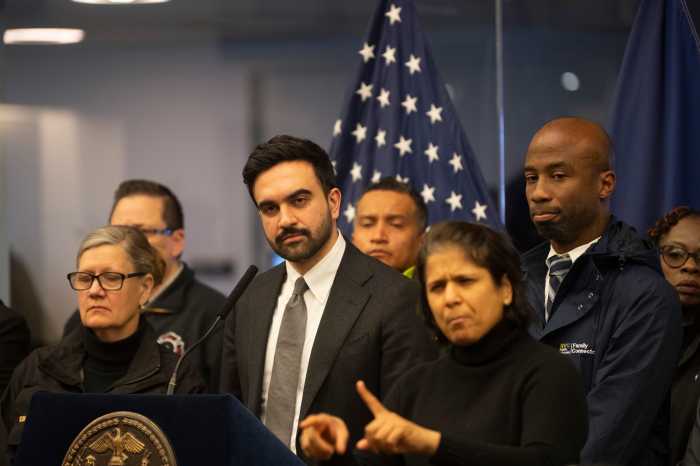At a southeast Queens community board meeting on Monday, elected officials debated two public safety bills that overwhelmingly passed in the city council that were subsequently vetoed by the mayor.
The city’s public advocate, Jumaane Williams, and Council Member Selvena Brooks-Powers joined the virtual monthly Community Board 13 meeting to discuss the legislation, with one bill requiring police officers to document low level civilian stops and the other limiting solitary confinement in the city’s jails.
One of the mayor’s senior advisors, Tiffany Raspberry, joined the call to defend the vetoes and a debate ensued.
The police bill, coined the ‘How Many Stops Act,’ would require cops to document virtually all encounters with civilians. The NYPD would then be required to deliver quarterly reports, including the demographics of those stopped, to the city council for the purpose of data collection. The report would include details such as the factors that led to the interaction, and whether it led to a summons or use of force.
Both the NYPD and the Mayor have referred to the proposed bill as a time consuming burden that would increase the amount of paperwork they need to file. The bill pertains to what’s known as Level 1 stops, in which police ask general non-accusatory questions. Stops that are more serious and accusatory in nature, deemed Level 2 and 3, already require such reporting.
But the public advocate and council member both disputed the mayor’s claim that the additional reporting would be a burden on cops.
“The bill that we passed, doesn’t interrupt police work, it actually is police work, according to their own patrol guide,” said Williams, who is the prime sponsor of the legislation. “Unfortunately, there’s been a lot of misinformation. There is no paperwork. That’s just a misnomer. It’s all on apps on your phone, or it is on a computer.”
He added that officers won’t be required to stop in the middle of an investigation to input the interaction and would be able to do it when they have a free moment or at the end of their shift when they tag their body cam footage. It would also not require documentation of simple interactions, such as when an officer says hello and asks about happenings in the community.
Reporting the interactions is not different from what is required from other city agencies, argued Brooks-Powers. She compared it to public health workers who have to document interactions with patients to ensure compliance and create a record.
“I share the same viewpoint as our community in terms of the importance of having a healthy relationship with law enforcement,” said Brooks-Powers, who represents neighborhoods such as Rosedale and Far Rockaway. “And at the same time, I do believe that we need to pass legislation that helps all New Yorkers that also provides an opportunity for transparency.”

But the mayor’s office believes that documenting Level 1 stops is unnecessary.
“The city agrees that reporting on level two and three encounters is appropriate when the person is a suspect of a crime,” said Raspberry, citing that it could also thwart efforts to reduce overtime costs by the NYPD. “We are asking that the city council reconsider and remove Level one, because we just feel that it would be too cumbersome.”
Brooks-Powers followed up, stressing that the ultimate goal of the bill is to secure data on community engagement with law enforcement. She also said the time to write up an interaction would take “less than a minute” on the app.
The other contested piece of legislation, Int 0549, would limit solitary confinement in city jails, specifically Rikers, and establish standards on restrictive lock-in practices. The Department of Corrections (DOC) currently has no restrictions on utilizing emergency lock-ins, which can sometimes leave those in custody locked in their cells at the department’s discretion.
The bill would place a four-hour limit on isolating inmates who pose an immediate risk of violence to themselves or others. Only inmates involved in violent incidents could be isolated longer, and they would need to be allowed out of their cells for 14 hours each day.
Criminal justice advocates, who seek more accountability from the NYPD and the Dept. of Corrections, are in support of the bills. They lauded the legislation which they believe will create safer conditions at Rikers, where at least 120 people have died in custody since 2014.
The mayor vetoed both pieces of legislation last Friday, after they passed overwhelmingly with a supermajority in the city council at the end of December.
In the solitary confinement bill, the mayor says the restrictions would reduce safety for both detainees and officers. Another aspect of the bill would ban the use of restraints on any individual under 22, which he said would make the process of exporting and transporting those in custody more dangerous.
“Many of the provisions, as the law is currently written, could inadvertently undermine the overall goals of protecting individuals from harm, promoting sound correctional practice, and improving safety for those in custody and jail staff,” said Raspberry.
The bill would provide clear definitions on what is considered solitary confinement and provide parameters for de-escalation practices. But isolation in a cell as a means of corrective behavior would not be allowed if it exceeds eight hours, or four hours following a conflict, as it has proven to be psychologically harmful.
“What we’ve learned is that isolation doesn’t help the person become less violent,” said Williams, adding that those in custody who pose a threat to others can still be separated from the population. “They sometimes use emergency lockdowns too frequently. People are locked in their cell, often for more than 24 hours.”
While the mayor continues to fight the passage of both bills in an aggressive campaign, City Council Speaker Adrienne Adams is also working to rally support from community members. With a democratic super-majority, Speaker Adams could secure enough votes to override the mayor’s veto and enact both pieces of legislation.
“Mayor Adams believes that both these bills were well intentioned, but they have unintended consequences that we have to address as an administration,” said Raspberry.


































